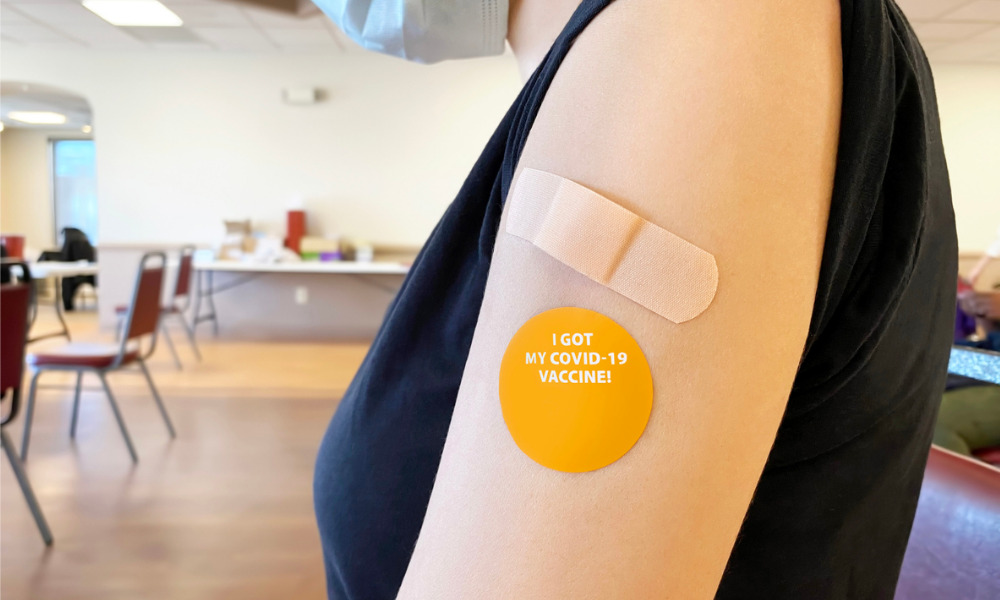
The court heard the final submissions for two suits against the health minister on Wednesday

The NSW Supreme Court is set to make a decision regarding mandatory COVID-19 vaccinations for essential workers.
On Wednesday, the court heard the final submissions for two suits that sought to invalidate Public Health (COVID-19 Additional Restrictions for Delta Outbreak) Order (No 2) 2021 (NSW) (Delta Order). The suits were filed against NSW Health and Medical Research Minister Bradley Ronald Hazzard, who issued the order.
The NSW Government – Health had implemented the Delta Order “to deal with the public health risk of COVID-19 and its possible consequences.” The order was based on section 7 of the Public Health Act 2010, which allows the health minister to implement actions and directives upon consideration of “reasonable grounds that a situation has arisen that is, or is likely to be, a risk to public health.”
Al-Munir Kassam v Bradley Ronald Hazzard (2021) and Natasha Henry v Brad Hazzard (2021) challenged the provisions of the Delta Order, one of which required a relevant care worker whose place of residence or place of work is in an area of concern “to have at least one (1) dose of a COVID-19 vaccine” or in its absence, to have “been issued with a medical contraindication certificate” [section 4.24 (1) and (2)]. Under the order, teachers, aged care workers and health care workers must get vaccinated within specific periods; otherwise, they will not be allowed to enter their places of employment.
Education and care workers must be fully vaccinated by 8 November, while workers at residential aged care facilities must have already received their first dose by 17 September. Health care workers must be fully vaccinated by 30 November, and must have received their dose by 30 September.
The Delta Order also prescribes that the workers concerned carry with them proof of their vaccination status.
The plaintiffs in Kassam submitted that the order is legally unreasonable, indicating in their suit that “the extreme threat of prohibiting an individual from undertaking work, unless they become vaccinated, has the effect of requiring an individual – in circumstances where they may not have otherwise given their consent to be vaccinated – to receive a dose of a COVID-19 vaccine. By effectually compelling individuals to be vaccinated, their right to bodily integrity is violated.” The plaintiffs also argued that Hazzard “exceeded the scope” of the powers granted to him by the Public Health Act.
The plaintiffs in Henry added that the restrictions in place upon refusing the mandatory vaccinations would “exclude [them] from participating in a significant aspect of social life.” The plaintiffs said that the implementation of the order would deny them “the right to continue working in their chosen vocation at their current place of employment,” as well as “the ability to earn a living and sustain themselves and their families as they only presently know how.”
The order’s requirements effectively make employers “a private sector vaccination police force, conscripted by Ministerial order,” the plaintiffs said.
The state defended the Delta Order’s restrictions, maintaining that they “can reasonably be regarded as necessary to protect public health and safety.” Section 7 of the Public Health Act and the NSW Delta Order “do not impose civil conscription,” the Commonwealth said in its submission.
The Commonwealth said that the enactment of the Public Health Act was in line with its legislative powers, and the enactment of the Delta Order was in line with the power given to Hazzard.
In July, Ashley, Francina, Leonard and Associates director Tony Nikolic had spoken out against the public health orders. In a public letter to Hazzard, he wrote that “a competent adult patient has the right to refuse medical treatment for whatever reasons, rational or irrational.”